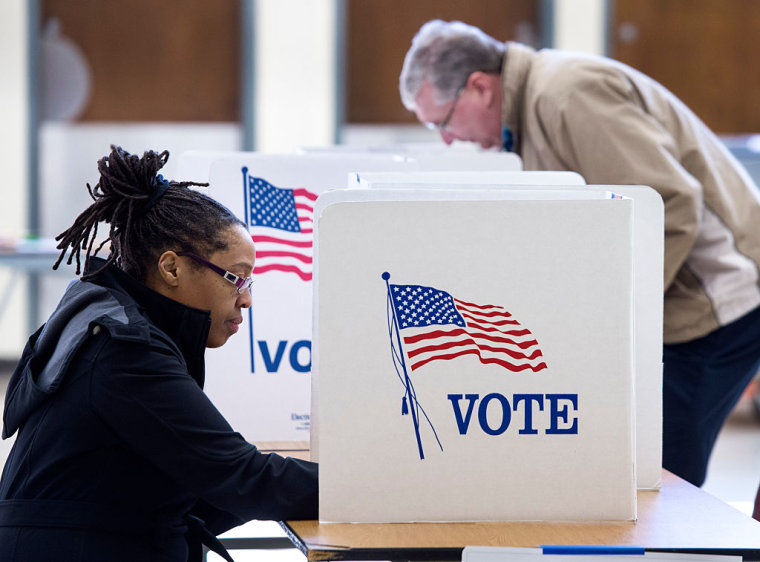Same-sex marriage legislation has hit a stumbling block in Australia due to the opposition of some members of Parliament. This is despite the fact that polling shows a substantial majority of Australians support same-sex marriage. Australia has only four openly gay members of its House of Representatives out of 150, and, according to new research, this low level of representation could be a contributing factor in the stalled progress of the legislation.
RELATED: Australian Opposition Makes Push to Legalize Same-Sex Marriage

A recent study by the Victory Fund, a political action committee that provides resources to elect LGBTQ candidates in the United States, shows a strong correlation between the number of LGBTQ public officials and the level of equality measured in terms of LGBTQ-friendly laws and policies.
While at the federal level, the U.S. only boasts 6 openly LGBTQ representatives out of 435, or 1 percent of those in office, representation at the state level was a key factor in the passage of same-sex marriage in statehouses.
A survey of 2,400 U.S. state lawmakers regarding their choice to support or reject same-sex marriage conducted by Alissandra Stoyan and Andrew Reynolds from UNC's LGBTQ Representation and Rights Research Initiative revealed the votes of straight lawmakers were importantly influenced by their LGBTQ colleagues.
“Some folks [within the] LGBT community think because we won marriage equality, the battle is won, but there is still a range of issues that need to be dealt with."
The reason behind this appears to be that simply knowing someone who is LGBTQ makes people more likely to support LGBTQ rights. “Being visible and present continues to change hearts and minds, and humanize us and our issues,” Aisha C. Moodie-Mills, President and CEO of the Victory Fund, told NBC OUT.
According to Reynolds, “When LGBTQ people come out, they become your daughter, uncle, friend, work colleague. They become humanized, normalized. We know that the number of people who support marriage equality tracks the number of people who say they know someone who is gay.”
Reynolds, a Professor of Political Science at UNC, thinks that this same mechanism holds for other types of legislation.
The Victory Fund’s analysis found that the presence of LGBTQ state representatives seemed to also prevent the introduction of anti-LGBTQ legislation. According to the research, “In the 20 states that are not facing anti-LGBT legislation, 85 percent have two or more openly LGBT state lawmakers. In the 30 states that are facing anti-LGBT legislation, 74 percent have only one or no openly LGBT state legislators.”
“If the new battleground is in the state legislatures, then we are going to need to have people in those bodies to champion comprehensive non-discrimination.”
The Governors of Mississippi and North Carolina, two states with no openly LGBTQ representatives, signed discriminatory bills. By contrast, Georgia Governor Nathan Deal vetoed a religious liberty bill that would have allowed faith-based organizations to deny services to LGBTQ people. Georgia has three openly LGBTQ legislators.
Understanding the relationship between representation and legislation may help explain the abundance of anti-transgender legislation introduced in the past year.
“[Transgender] visibility is a very recent phenomenon; there are only about 20 transgender people in office anywhere in the world," Reynolds said. And, it is worth noting, no trans person has ever been elected to statewide office in the U.S.
“The thresholds and barriers are enhanced over and above those for lesbian and gay candidates,” Reynolds added. “The [LGBTQ] people who make it into office worldwide are white, gay men.”
But Reynolds clarified that the issue is not that voters won’t choose a trans representative, but that “the parties won’t put candidates up. They are scared of the label and losing a seat.”
While the fate of North Carolina’s HB2 bill, which restricts restroom access for trans people, has yet to be decided, this legislation has real consequences, particularly for trans youth. According to Reynolds, suicide attempts occur more frequently after experiencing discrimination such as not being allowed to use the bathroom of your choice. This type of legislation “can have significant costs to young adults in society,” Reynolds said.
RELATED: Trial Over North Carolina's Transgender Bathroom Law HB2 Delayed
Moodie-Mills believes there is still significant work to be done to improve LGBTQ representation.
“Some folks [within the] LGBT community think because we won marriage equality, the battle is won, but there is still a range of issues that need to be dealt with,” she said. “If the new battleground is in the state legislatures, then we are going to need to have people in those bodies to champion comprehensive non-discrimination.”
Julie Moreau is a Post Doctoral Research Fellow in the Department of Women's, Gender and Sexuality Studies at Washington University in St. Louis. She tweets at @JEMoreau.